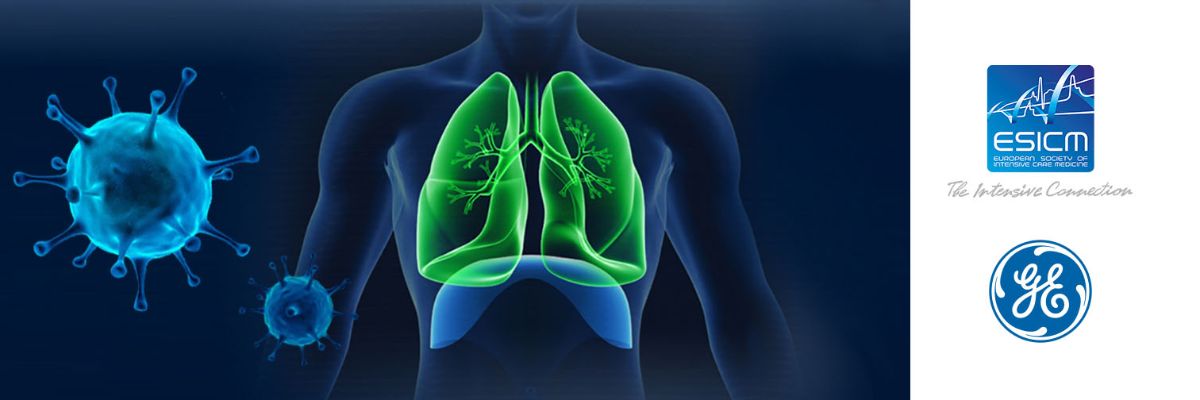Intensive Care Medicine has been thrust into the limelight over recent months as the treatment and outcomes of critically ill COVID-19 patients across the world have been closely examined. Never before has the speciality had so much attention, or pressure, in playing a crucial role in the fight against the new and unexpected infectious respiratory disease.
As the pandemic escalated across Europe, nations went into lockdown and the calendar of key medical industry community congresses was postponed. However, the light of learning and sharing of knowledge were not extinguished. Intensivists, anesthesiologists and other critical care physicians continued positive dialogue, as vitally as they tended to their patients. This ongoing exchange of best-practice, experiences and techniques has proved valuable in the assault against the deadly virus.
The exchange of clinical experiences saves lives
The European Society of Intensive Care Medicine (ESICM) represents over 9000 intensivists. It supports the advancement of knowledge and promote the highest standards of multidisciplinary care of critically ill patients and their families through education, research and professional development. In the absence of being able to coordinate face-to-face international congresses and meetings, its focus has been more on sharing research and advice online, plus setting guidelines.
This proactive approach to ensuring that members’ understanding and intel stays at the forefront at a crucial time, has been buoyed with the signing of an agreement with GE Healthcare. It includes a GE educational grant to help organise activities that increase clinical expertise about caring for COVID-19 infected patients and providing care in a crisis mode environment.
“Many of the members of the ESICM community are in the middle of a pandemic that has never before demanded so much assistance from intensive care units. Educating and informing healthcare professionals who are - and will be - treating the critically ill patients contaminated with the virus has become even more essential”, said ESICM President, Professor Jozef Kesecioglu.
This is echoed by Maurizio Cecconi, Head of Department Anesthesia and Intensive Care Units at the Humanitas Research Hospital Milan and ESICM President elect, “We are using the ESICM platform to share clinical experiences which can help healthcare workers on the front line to save lives. Training, education and simulation will help intensivists to better prepare themselves for the fight, and as doctors and nurses, we will fight.”
A broad range of skills & understanding helps treat the patient as a whole
Recently, ESICM issued a statement highlighting the importance of recognizing that Intensive Care Medicine is a base specialty, and that through ongoing training physicians acquire competencies to practice multidisciplinary Intensive Care Medicine. It stated that although intensivists may have different base specialties and fields of interest, they have to maintain a generalist approach in order to exercise a broad range of skills and knowledge to treat the patient as a whole.
A powerful peer community to support through COVID-19 pressures
The regular flow of intensive care medicine peer resources is therefore crucial to keeping skills and intelligence high in the intensivist community. Throughout the COVID-19 crisis these have continued to be made available through the ESICM website and webinars drawing on the experiences of others.
The sharing of experience between peers has been important during COVID-19 times to support all areas of intensive care medicine across Europe, the Middle East and Asia. This has included interactive webinars on early findings from China and the outcomes and experiences in the Lombardy region of Italy.
Furthermore, a worldwide COVID-19 marathon webinar was organised by the ESICM at the end of March 2020. It lasted seven hours with world experts sharing their perspectives on managing patients via interactive presentations and live Q&As with clinicians. This delivered many benefits in terms of education, engagement and information and its reach extended across multiple time zones. An ESICM half marathon, similar in tone about what has been learnt about COVID-19, will take place on Saturday 16 May 2020.
Cutting through the fog to see a clear way ahead
When the pandemic was defined and case numbers started soaring, too much information and conflicting views could have created a knowledge fog, shrouding clarity. Instead, the shining light of a professional association triaging and carefully disseminating topics of interest to its members helped steer a clear course through. COVID-19 may have set many challenges but it has also amplified the value of peer communities and industry partners in working together for a common goal.





